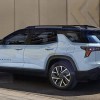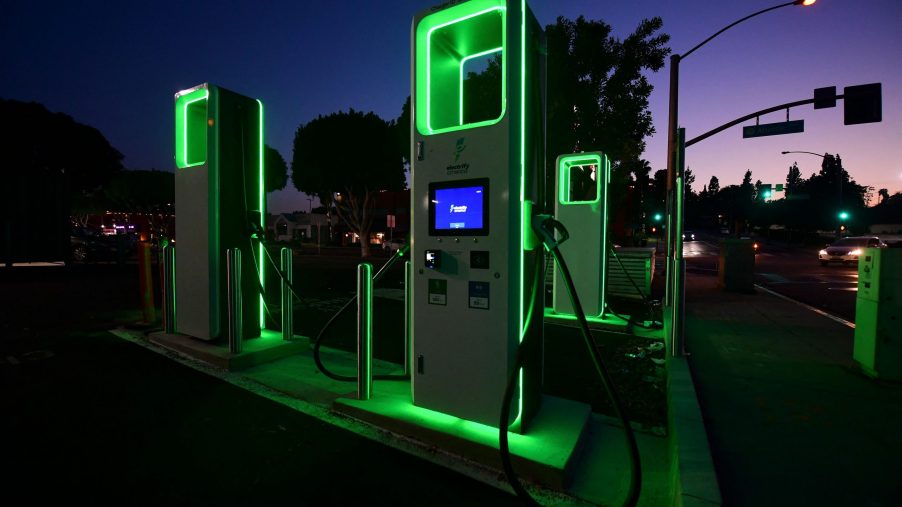
Electric Car Charging Stations Aren’t Being Built Fast Enough: Here’s Why
Joe Biden’s plan to have half of new car sales be zero emissions by 2030 is a lofty, but possible ambition. Automakers are already shifting to electric cars, with plans to eliminate gas engines within the coming years. But the one aspect that can’t seem to keep up is public charging stations. Without enough of them, the hopes of a net-zero emissions future are far-fetched.
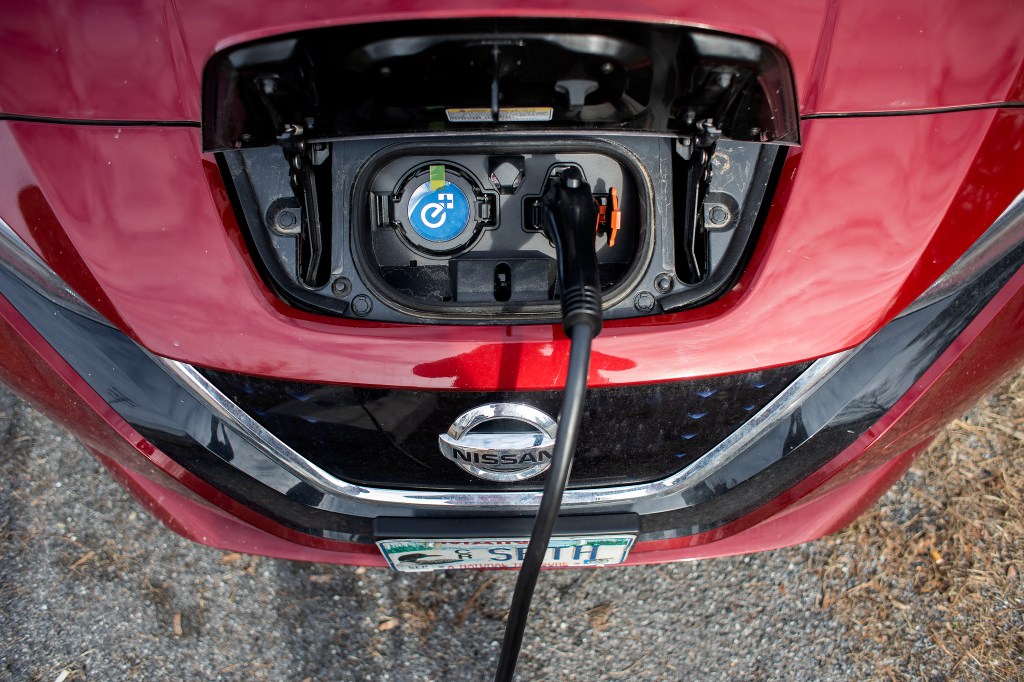
Not everyone can purchase an electric car right now
There are fewer reasons for someone not to buy an electric car now than there were 10 years ago, when the tech was brand new. But that doesn’t mean everyone can. For starters, a lot of once-affordable electric cars are about to become much more expensive, as electric car tax credits expire. The first 200k electric cars automakers built would get the $7,500 price slash, but after that, they’re base price.
However, from a logistics standpoint, not everyone has the means to own an electric car. People say that electric cars are great because you can park them and charge them overnight, but this is assuming a couple of things. For starters, it assumes people have a charger in their garage. But on top of that, it assumes people have a garage.
According to the National Apartment Association, one in eight Americans live in an apartment. That’s 39 million people in total who, simply put, can’t get electric car chargers yet. Some apartment complexes may have a dozen or so charging stations, but that isn’t enough to meet our future emissions goals. On top of that, many people simply park on the street, and installing a car charger for every spot would cost billions of dollars.
Nick Nigro spoke to The New York Times about how $7.5 billion is just laying the groundwork for electric car charging stations. “Is it sufficient? No. But it gets things going,” he said. And that money would need to go toward more charging stations if we want consumers to make the switch.
We have a lot of charging stations, but need a lot more
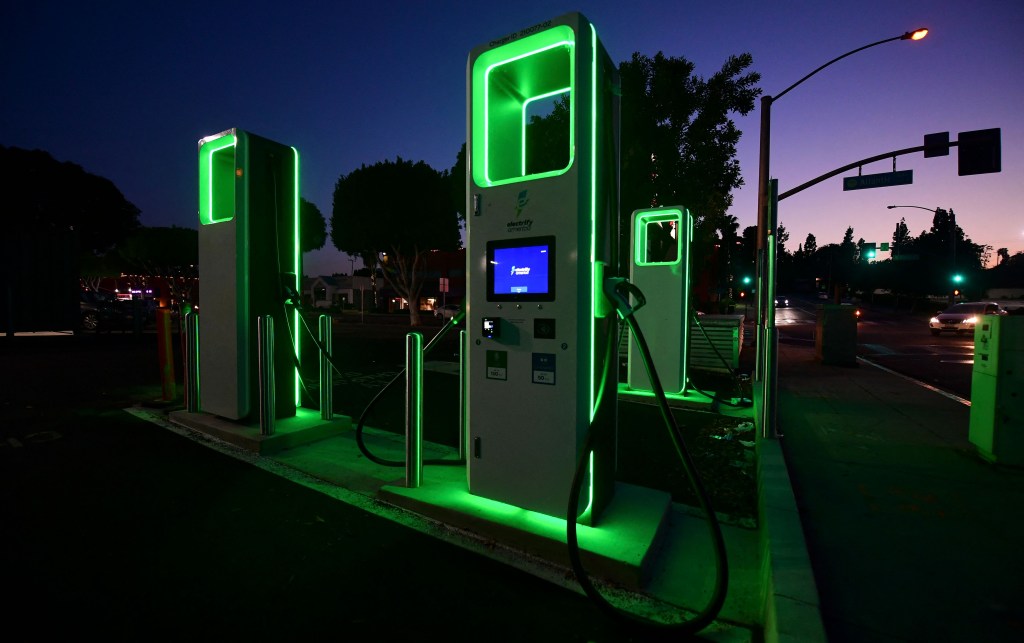
Each automaker is investing in its own electric car charging network. There’s Volkswagen with the Electrify America program, or Tesla with the largest DC fast-charging network in the world. And scattered around are individual companies, such as Charge Point. And while they have the largest network of public chargers in the country, adding up to almost 70,000 stations, we’re far from where we need to be.
The nation has around 120,000 chargers, and there are plenty more on the way. But in order to get to a point where there are enough chargers to go around, experts predict there have to be at least 10 times more chargers available. Building those would cost tens of billions of dollars, more than what lawmakers are willing to spend. And to large businesses, building charging stations right now feels like money wasted more than money well spent.
For charging companies across the country, the bulk of revenue doesn’t come from the charging stations themselves, but from investors. If electric car charging stations were truly raking in the green, you’d see big oil companies like Exxon Mobil converting their pumps. But that’s just not the case yet.
Gas cars are still far more profitable
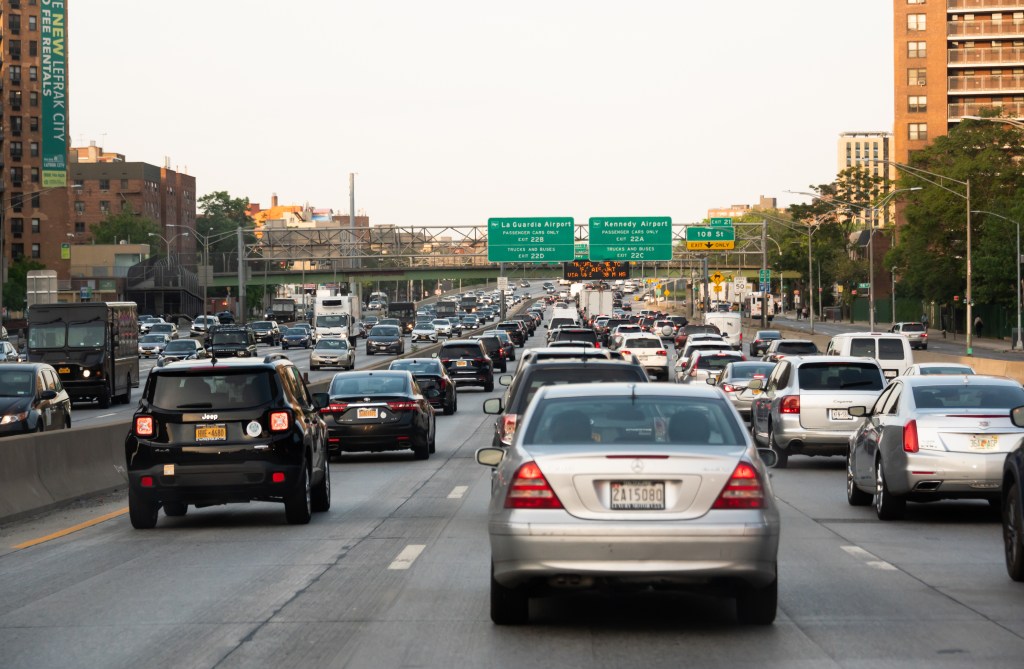
Think of it this way: electric cars make up 1% of every car on American roads today. If you’re a big business, you want to invest in the future, but as of right now establishing a vast electric car charging network would cost a lot more than you’d make. And it’d take years before companies going this route ever break even. But despite automaker’s electric car timelines and pledges from the president, EV sales aren’t growing all that fast, and gas cars aren’t going anywhere.
You have to remember that, even if 50% of new car sales are electric, there will be a lot of used cars and older cars that run on dinosaur juice. The New York Times even calculates that, if we had 60% of new car sales go electric by 2050, only 42% of cars on the road would be EVs. That’s in 30 years, and gas cars are still set to be tooling around unless it became mandatory to get rid of gasoline cars. And while I’m not opposed to a shift to EVs, I doubt taking away gas cars by force would go over well.
There are many reasons why you shouldn’t expect electric cars to take over the globe, despite how many we’re producing. Electric car technologies are amazing, and they’re better for the planet in the long run, they’re still a long way away from the net-zero emissions future we’re all hoping for.


